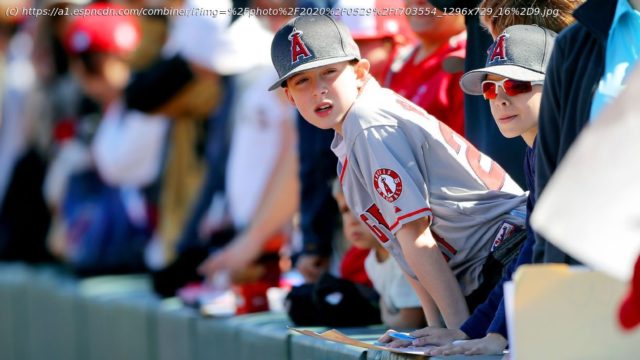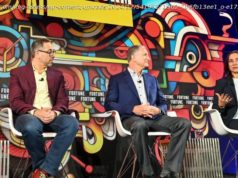If the owners and players can’t find common ground to return to the field, the damage to baseball will be devastating.
Many of the folks inside baseball but outside of the Zoom labor negotiations assume that, eventually, cooler heads will prevail in the talks between the owners and the players’ union. Because they have to — right?
Because the alternative — no attempted restart of baseball in 2020 because of a failure of the two sides to agree to terms — bears catastrophic consequences, now and in the sport’s future. The leaders on both sides have to see that — right?
They have to understand this nuclear option is no option at all — right?
They have to understand how baseball might need a generation or two — decades — for some fans to forget or forgive this ill-timed squabble over money, at a time when so many have lost jobs and increasingly struggle to meet the cost of shelter and food. Baseball’s owners and players can’t be so deeply mired in distrust and doctrine that they don’t see this — right?
But here we are, in a countdown to utter disaster for Major League Baseball, and sources of moderation on both sides are having difficulty identifying the path through which the parties will leave their respective bunkers to reach the agreement the industry must have. As distasteful as the terms might be for the owners and players, they should all recognize that while concern over player and staff safety could ultimately prevent games from being played, they must settle the question of player compensation — whatever form that takes — and shake hands on the deal and smile for the cameras. (Actually, please be sure to get it in writing that everybody acknowledges — more later on how the failure to do that has contributed to the current stalemate.)
If that doesn’t happen — if they can’t agree on a deal to play in 2020 — baseball will become a loathed presence on North America’s sporting landscape, scorned by many fans. The labor fight will merely be deferred, with escalation in some form all but assured because of the unresolved issues.
Next spring, with only months remaining in the current collective bargaining agreement, the players are more apt to use the threat of a strike. Owners, already damaged by the money losses this year, could be more inclined to dig in and wait out the players, aiming for a lasting reconstruction of baseball’s financial model. The labor fight could go on and on, and by the time it all plays out, it’s impossible to know how many fans, feeling alienated or disgusted, will leave baseball behind once and for all.
The only sure thing is that the owners and players will lose, unless they settle this standoff that risks mutually assured destruction.
So they have to make a deal. Right?
The fractures between the lead negotiating groups — led by commissioner Rob Manfred and union chief Tony Clark — have developed into a gaping chasm of suspicion and frustration. But each side will also have to work through competing internal forces.
Sources say there is a group of owners perfectly willing to shut down the season, to slash payroll costs and reduce losses, and the disparate views among the 30 teams have been reflected in the decisions to fire and furlough. The Pirates’ Bob Nutting used the shutdown as an avenue to suspend team contributions to employee 401K plans — savings best measured monthly in the tens of thousands of dollars rather than the millions that would actually be difference-making for a franchise probably worth at least $1 billion. The Oakland Athletics’ John Fisher decided to eliminate the $400 weekly salaries of minor leaguers, which might save the franchise about the amount of the team’s unpaid stadium rental bill. On the other hand, clubs such as the Tigers, Padres and Royals demonstrated greater humanity, with the Royals’ John Sherman deciding to pay his minor leaguers.
The clash of clans on the players’ side was illuminated this week by the Twitter spat between Trevor Bauer and Kyle Lohse, client of Scott Boras, after Bauer tweeted, in so many words, that Boras should butt out of union business. Over the past 2½ months of social distancing, raw exchanges like these have me wondering how we are so technologically advanced and yet so many seem unable to place a direct phone call.
An oral history of the 1994 MLB strike that nearly destroyed baseball. Tim Kurkjian »
I know what you’re thinking: «OK, Boomer. That conversation stuff is so old-school.» But better communication will be needed to overcome the union’s internal division, to band the baseball brothers together and present a united front that was once a reflex position among the players.






